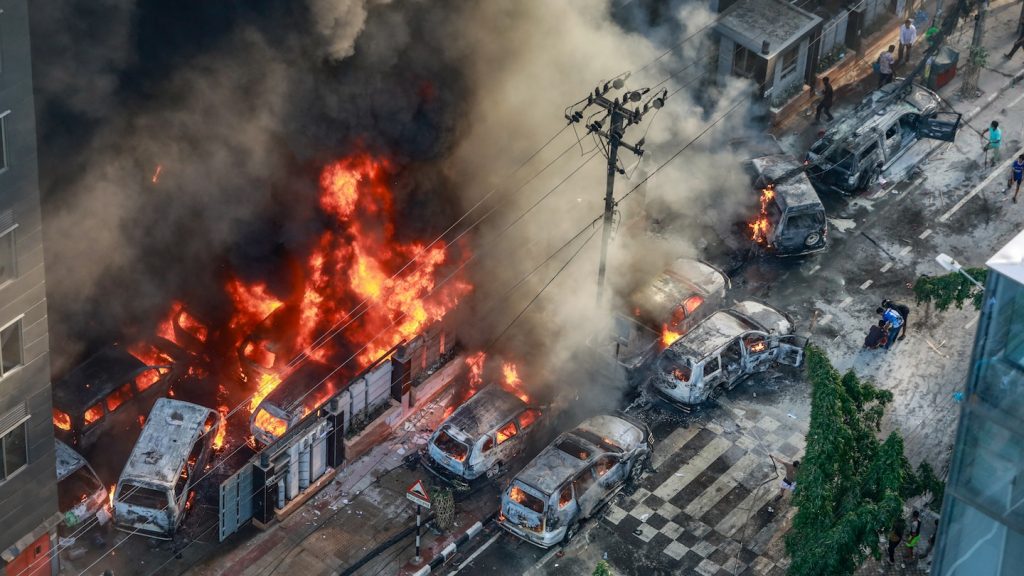More than 150 people were being treated in Dhaka hospitals for injuries from rubber bullets, according to Agence France-Presse, and there were reports of clashes between demonstrators protesting against job quotas and student wing of Prime Minister Sheikh Hasina’s ruling Awami League party.
Hasina’s spokesman Nayemul Islam Khan told AFP on Friday that the military would also be deployed to enforce the curfew, which began with immediate effect. She supports the new government employment policy.
Schools and universities were closed indefinitely even before the curfew, and authorities suspended mobile internet services across the country, citing the need to curb disinformation. Internet monitoring group NetBlocks said Bangladesh was under a near-total internet shutdown late on Thursday, according to live network data. The websites of Bangladesh’s major newspapers have not been updated since Thursday or are completely inaccessible. Television stations have also gone off the air.
As of late Thursday, before a complete blackout, media outlets were giving conflicting figures on casualties, but most put the number at several dozen. Major newspaper Prothom Alo put the death toll at 29 on Thursday and 1,500 injured, while AFP, citing a police spokesman, put the death toll that day at 32.
The protests, which have been simmering for weeks, have intensified in recent days, posing the most serious challenge in years for Hasina, 76, and her Awami League party, whose father, Sheikh Mujibur Rahman, helped found the group in 1949 and which led a bloody independence struggle against Pakistan in 1971. Hasina has said family members who fought in the struggle should be compensated with jobs, but critics say the system unfairly benefits families close to the Awami League at a time of economic hardship.
Get caught up in
Stories to keep you up to date
Hasina is credited with revitalizing Bangladesh’s textile export industry and improving public infrastructure during her more than two decades in power, but the country has recently struggled with inflation above 9 percent and sluggish growth. Government jobs are often seen as the most stable and coveted option for young jobseekers, but more than half of the slots are reserved for miscellaneous groups, including people living in remote areas and women.
A 30% quota for the descendants of freedom fighters existed until 2018, when it was scrapped by Hasina’s government amid violent protests. Last month, a Bangladeshi court reinstated the policy, and Hasina has maintained that it continues to uphold it.
At a press conference on Sunday, Prime Minister Hasina said she was open to reducing quotas but insisted there should be some form of policy. Her use of the politically loaded term “razakars” – a reference to a group of insurgents who collaborated with the Pakistani military in 1971 – reverberated across the country and prompted angry student groups to take to the streets.
“Why do they have so much resentment towards the freedom fighters?” Hasina asked. “If the grandchildren of the freedom fighters are not getting quota, shouldn’t the grandchildren of the Razakars get it?”
Hasina has won every election since 2009, including ones criticized as unfair, and has come under fire for an increasingly heavy-handed leadership style. (She led the country from 1996 to 2001.) Ahead of the most recent general election in January, her government jailed thousands of opposition figures and won unopposed despite the opposition boycotting the vote.
The Supreme Court suspended the quota policy and announced it would rule on its legality on August 7. In her final public remarks on Wednesday, Prime Minister Hasina appealed for “patience” and said she believed “our students will get justice from the court.”


